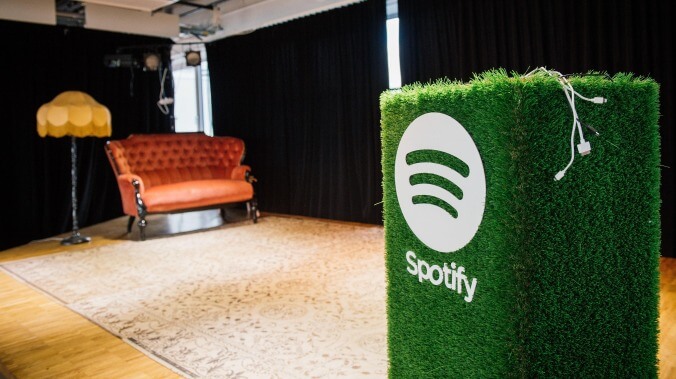Congress has some questions about Spotify's new royalty-reducing "Discovery Mode"

It’s no secret that Spotify can be a dicey avenue for achieving financial musical success. Rates vary by country, but artists typically end up taking home a fraction of a penny every time their songs are streamed through the massively popular service, and the sheer vastness of the company’s library can make breaking out and getting those digital ha’pennies even more difficult. Now, the streamer’s business practices have come to the renewed attention of no less an august and occasionally effective body than the U.S. House Of Representatives, with the Chairman of the House Judiciary Committee, Jerry Nadler (D-NY), shooting a letter to Spotify on Wednesday checking in about whether its new “Discovery” program might, y’know, institute a downward spiral of reduced income in exchange for fruitless quests for attention that might make online musical success even closer to impossible to achieve.
For those unfamiliar with the Discovery program, it’s a pilot project that Spotify launched late last year, in which some artists and labels were offered the chance to improve tracks’ rankings in Spotify’s highly influential playlist algorithms in exchange for accepting a smaller cut of royalties for that music. Spotify’s argument, per The Hollywood Reporter, was that this was simply a chance for artists to express their priorities for performance on the service, i.e., “Do you want to make money?” or “Do you want as many people as possible to hear the song?” But Nadler, along with colleague (and Chairman of the Subcommittee on Courts, Intellectual Property, and the Internet) Hank Johnson Jr. (D-GA) raise, in their letter, the not unreasonable question of what happens if this sort of program becomes permanent? How far down the rabbit hole can a project that encourages artists to trade their payments for a perceived competitive edge take them?
These, and other related questions, were the subject of said missive, sent to Spotify founder Daniel Ek this week, and informing him that he has until June 16 to answer their questions about royalty rates, how success of the program will be measured, and what the company is doing to prevent a “race to the bottom” scenario where artists take less and less money for increasingly nebulous algorithmic rewards. (Spotify’s Swedish, so that request probably doesn’t carry a lot of legal weight, but it is a reminder that Congress does occasionally try to understand the incredibly vast societal changes the internet has performed on basically every industry on the planet.)